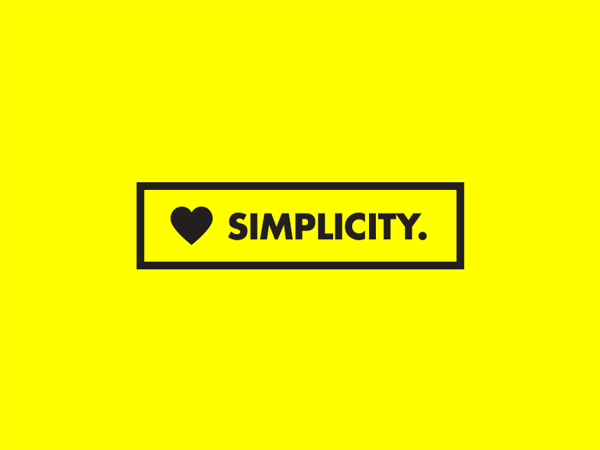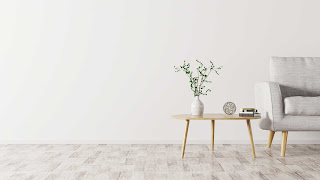People have, I’d assume unintentionally, made possessions the yardstick of success. A large part of who you are gets defined, at least, socially, by what you own; consumerism is a powerful force. Trade and commerce control society in ways that we do not often imagine. Patterns of consumptions are studied, newer consumer vulnerabilities are identified and then products and services are conceived to play into that sentiment. Not all of what is being sold is sinister, we aren’t nomads or cave dwellers, we surely need things to comfortably live by but the question is that do we only own stuff that we need or are we surviving with less or have we amassed a lot more than the need? What we ‘need’ is a rather elusive question, people are almost granted to answer it in affirmative when asked on conformance. Let’s agree it is not easy for everyone to concede that they are ‘hoarders’. The place of courage from which such an admission might come is as prized as it is rare.
Let’s test ourselves, shall we?
Make a list of all your possessions, everything that you own, down to the smallest pin, both inherited or bought – everything! And then map when was last that you actually used the article. Creating a simple table like the below one should help you get a handle over it.
| Serial Number | Article | When was it acquired (approx) | Why was it acquired (vaguely) | When was it used last(approx) |
Do not intend to finish this in quick 30 minutes because you’ll not be able to. When you start documenting items you will end up listing most frequently used items first and as you exhaust such items your pace will grow weak. At this point take a break, make yourself a nice cup of coffee and start from one corner of the house, or let’s say from one of the rooms and start listing everything that you see. Open drawers, boxes, suitcases, cupboards, everything. It will be an excruciating exercise, you’ll certainly want to give it up. Midway this exercise may seem pointless and a colossal waste of time too but trust me, keep up with it. Do not give up on it. It is ok to finish it in the course of the week or even a fortnight. There is no rush to reach the finish line the same day. While if you can do it there is nothing like it.
After you’ve scanned every corner of the house and listed everything that exists in your home, take a count of total items, and then put a filter on all the items that were used at least once in the last 90 days. Divide the count of items used at least once in the last 90 days with everything that you possess.What does that %age look like?
20% ?
30%?
Or somewhere in the middle?
Let’s say that if you have scored anything more than 50% then you’re already in a great state of health. Lower the % deeper the hoarding issue. We are good at going with the flow, we give in and try to compensate for emotions with items, the only sad truth is that articles do not compensate for the void, at its best it only distracts us from the core issue temporarily, but that is all that it does. Think of it if what you do not use regularly actually doesn’t add any real value to your life and therefore if it were to not exist your life will not be any less good or bad or any different.
Clutter is easily the item that you have not used in the last 90 days and yet possess. It not only takes physical space but also attention and much more than that by means of housekeeping. It also tells us that we have not been intentional about acquiring stuff and in the process have created a heap of unused and therefore unneeded items. This is just about you, now think what this might be doing to the ecology and the environment of the entire planet? Imagine if all 7.5 billion of us only possessed items that we actually used, the world would be free of at least 60% of the stuff and therefore the burden.
Global warming and increased risk of not creating sustainable living would not have been an issue, as grave, as it is today.
Creating a sustainable environment is a result of creating a mindful lifestyle and in that direction minimalism is a great step. I’m not professing for sainthood here, nor I’m asking you to get rid of everything .. it is not recreating ‘the monk who sold his Ferrari’. My pitch is for us to become intentional about what we own, and by extension what is that we let accumulate around us.
Coming back to the exercise, that we spoke about:
#1 Try and sort the list in descending order, that is, items that you have not used in the last 90 days should appear first in the list.
#2 Start from the top and go to the middle point of the list.
#3 Pack the least used items in boxes/containers/suitcases and stash them away in a safe & dry place.
Spend the next 6 months on the items that you are left with, that is all that you use on a day to day basis and some more. Remember you do not have to deprive yourself of things that you love and would want to have. In this exercise you are only trying to be a little more mindful of what is around you, that is it. Should a need arise, you can always dip into the storage and get the items that you wished away as part of this exercise. It is an okay thing to do.
The thing to note here is that you will need to keep updating that table that you just made. So that you have a view of what has been happening with your usage and items.. A log of all additions.
When the six month period gets over, take another stock, which is another look at the table.
You would have by then lived 9 months with items that you frequently use and a little more. Think, is it going to be possible for you to give away/sell the rest 50% items that remained locked in the storage for 9 months (barring seasonal clothing/items)? If you can, it will be a great start to a good life, a life without clutter of items that you may not need.
It is not easy but if you can get this straight, you will be on the path of becoming a minimalist, which is a great thing not just, ecologically, environmentally but also economically. The mindful living will teach you the important virtue of abstention; hopefully, you will be able to control your urges to buy and hoard, better. Remember you still have 50% items that you had available to use, again make a list of items that were least used and try and give up about 10% of those to the storage.
Living with less, creates more of things that matter, like free spaces, lesser economic burden, and more happiness. When you declutter you give yourself an opportunity to wander less and concentrate on things that matter most. I’m not an expert at it, nor have I become, a minimalist completely but I have made some good progress, a few things that I’ve accomplished are:
- Simpler wardrobe: I wear similar clothes at least 20 days a month, that is a white shirt and black trousers. I haven’t gotten over my love for shoes so I still have quite a few of them out. Gotta work on it.
- Digital decluttering- I was in a mindless upgrade game, I used to hoard every gen item that I could lay my hands on. Multiple items of the same category. Many phones, computers, tablets, headphones, smartwatches, etc. For over a year, I have been able to become singular, one MacBook, last-gen iPhone and apple watch, one pair of headphones, one iPad and that is it. One item each category.
- Subscription – I used to hold more than 30 annual subscriptions of all kinds of services, from music to application to platforms. I’ve simplified it, to one subscription per service that I like and enjoy. Thereby cutting about 60% of the mindless digital hoarding.
- E-Reading : I pride myself on being an avid reader, as a result, I would easily buy close to 200 books every year, I have reduced it to less than 50, I try to read more digitally now.
My life has become objectively better not just clutter wise but also on the level of finances. Not having clutter makes me feel more fulfilled, focused and usually relaxed.
On the work front I used to be obsessed with information, I needed to know everything that was happening around me, every version of it. In the last two years, I have been able to actively reduce useless information hunger and have tried to concentrate on the job at hand, just that, it has improved my productivity.
I no longer obsessively check and refresh email every now and then, I have a routine for it. I check emails three times on a typical workday. I still end up replying to everyone but now the emails do not interfere with my creative work. I’m able to focus. My phone used to be full of notifications from social media, news, and other applications, I have turned off notifications as a result, I now check on them when I have the time for it.
These small alterations have made me a little more aware of my surroundings and have helped me focus better.
It is definitely worth a try .. I recommend you give it a shot.

